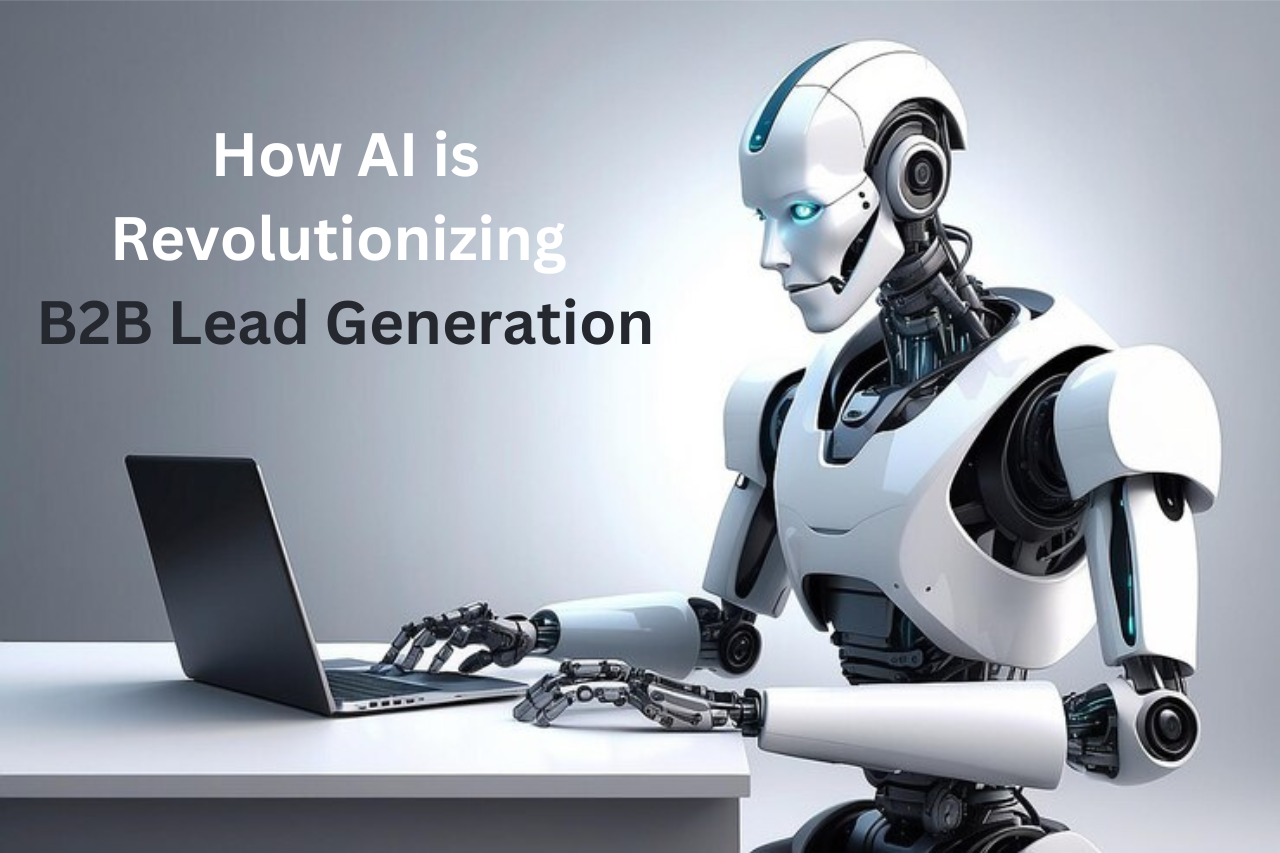
How AI is Revolutionizing B2B Lead Generation
Artificial Intelligence (AI) is rapidly transforming the B2B landscape, particularly in the field of lead generation. With the ability to analyze vast amounts of data, predict buyer behavior, and automate tasks, AI is enhancing the efficiency and effectiveness of B2B marketing strategies. As businesses seek to connect with high-quality leads more efficiently, AI is providing the tools necessary to stay competitive in a rapidly evolving market. The Role of AI in B2B Lead Generation AI’s role in B2B lead generation starts with data. AI systems can sift through enormous amounts of data, identifying trends, preferences, and behaviors that human marketers might miss. By utilizing machine learning algorithms, companies can make smarter, data-driven decisions, pinpointing high-potential leads. Moreover, AI tools allow businesses to predict which prospects are more likely to convert, helping sales teams focus their efforts on leads with the highest probability of success. Key AI Technologies Powering B2B Lead Generation Predictive Analytics: AI analyzes historical data to predict future behavior. In B2B lead generation, this means identifying leads that resemble existing high-value customers and targeting them with personalized content. Chatbots and Virtual Assistants: AI-powered chatbots engage with prospects 24/7, answering queries, qualifying leads, and directing users through the sales funnel without the need for human intervention. Automation Tools: Lead scoring, email marketing campaigns, and customer segmentation can all be automated using AI tools, reducing manual work and allowing for better scalability. Here are the names of the automation tools: HubSpot, Marketo, Salesforce Marketing Cloud, ActiveCampaign, Pardot Benefits of AI in B2B Lead Generation One of the main advantages of using AI in B2B lead generation is its ability to enhance efficiency. AI-powered systems can work continuously without human intervention, providing around-the-clock support to marketing and sales teams. Additionally, AI’s ability to personalize content means that potential leads receive more relevant messages at the right time, significantly improving the chances of conversion. It also reduces human error, resulting in a higher quality of leads. AI-Driven Personalization and Targeting AI allows marketers to offer hyper-targeted content to leads. By analyzing user behavior and preferences, AI can craft personalized messages and recommend the most relevant products or services. This level of personalization ensures that prospects feel understood, increasing the likelihood of engagement and conversion. Future Trends in AI and B2B Lead Generation As AI continues to evolve, several emerging trends will further impact B2B lead generation: Advanced Natural Language Processing (NLP): With better understanding of human language, AI will be able to engage in more complex conversations with potential leads. AI-Powered Content Creation: AI tools are increasingly able to generate personalized content, including email campaigns and social media posts. Deep Learning for Sales Forecasting: AI will be able to make more accurate predictions on future sales based on past data and market conditions, allowing companies to optimize their lead generation efforts. Conclusion: The Future of AI in B2B Mar keting AI is not just a tool for automation; it’s transforming how businesses engage with prospects and generate leads. As the technology evolves, it will continue to improve efficiency, personalization, and the overall quality of leads. For B2B companies looking to stay ahead in a competitive market, adopting AI is no longer optional—it’s essential for future growth.
